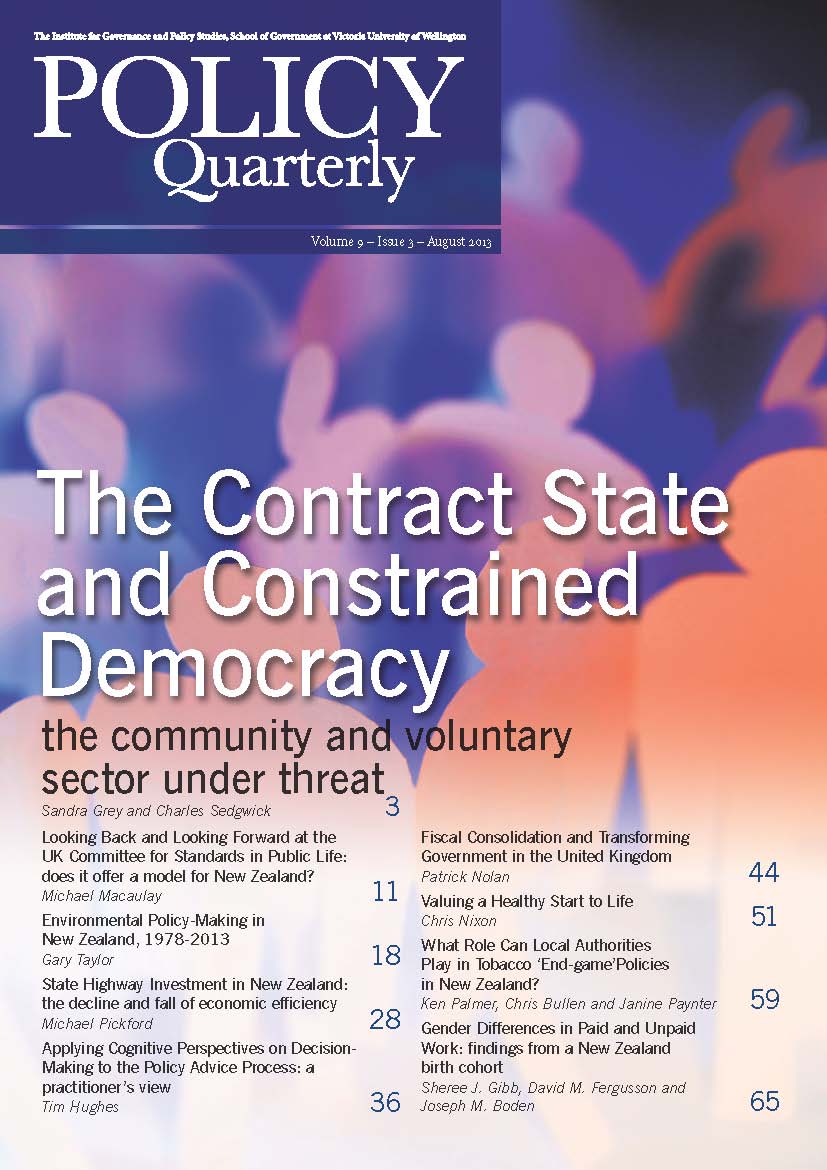Fiscal consolidation and transforming government in the United Kingdom
DOI:
https://doi.org/10.26686/pq.v9i3.4456Keywords:
International Monetary Fund (IMF), Coalition, Office for Budget Responsibility (OBR), austerity, long-term spendingAbstract
In August 2010 the Economist magazine featured on its front cover a mocked-up photo of the United Kingdom’s new prime minister, David Cameron, sporting a punk rock-style Union Jack mohawk. This reflected the promise of a new, radical approach to fiscal policy. As the Economist (2010) noted: ‘Britain has embarked on a great gamble. Sooner or later, many other rich-world countries will have to take it too.’ This article looks at the United Kingdom’s recent experiment with fiscal consolidation. It puts this consolidation into its historical and international context and assesses its strengths and weaknesses. It shows that over its first three years the Coalition government failed to create a fiscal policy framework that holds spending on a lower track. However, the June 2013 spending review (for the 2015–16 fiscal year) and recent positioning of the opposition Labour Party indicate that a new approach to fiscal discipline may now be starting to take hold.
Downloads
Downloads
Published
Issue
Section
License
Permission: In the interest of promoting debate and wider dissemination, the IGPS encourages use of all or part of the articles appearing in PQ, where there is no element of commercial gain. Appropriate acknowledgement of both author and source should be made in all cases. Please direct requests for permission to reprint articles from this publication to Policy-Quarterly@vuw.ac.nz.



